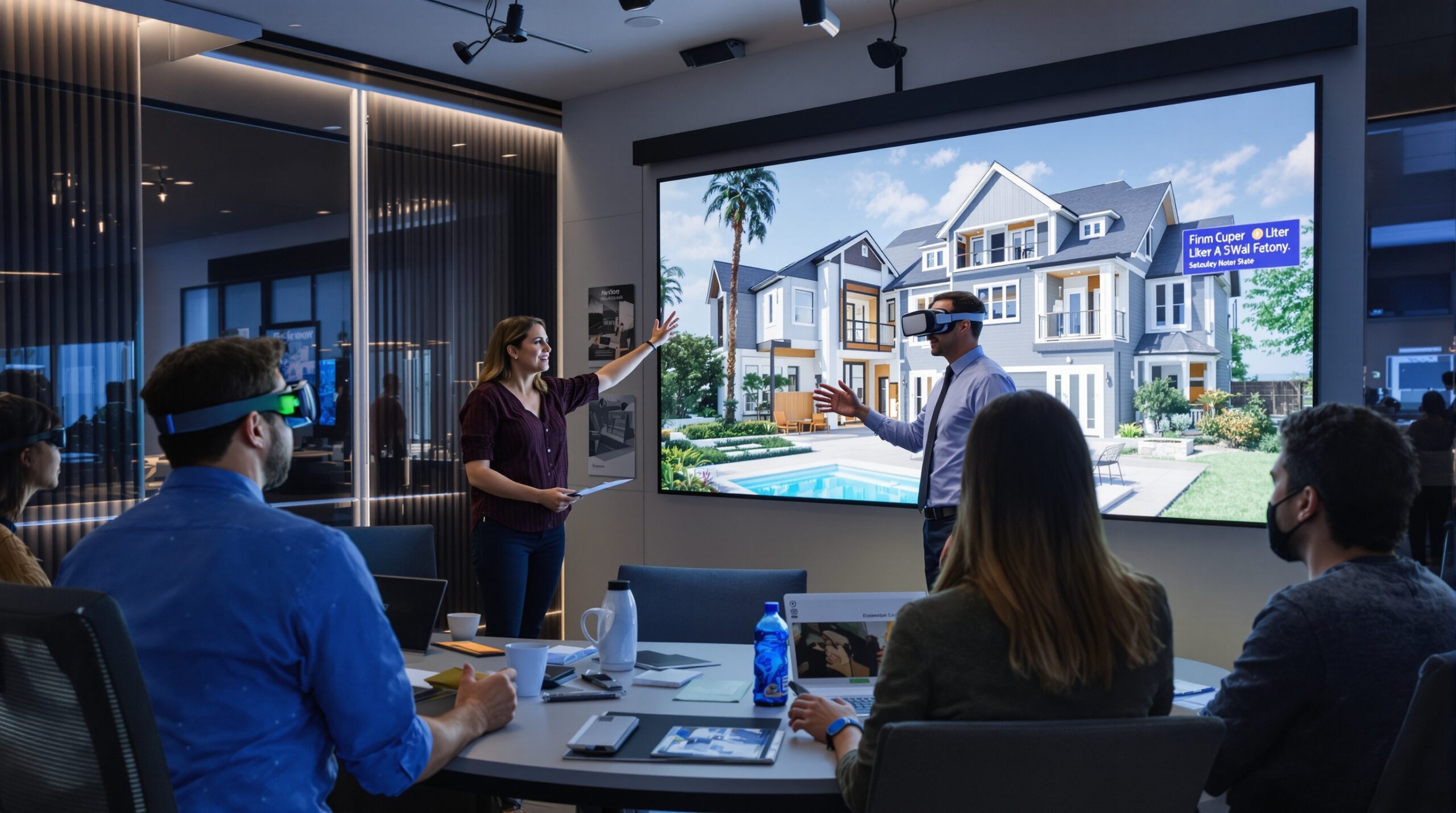Virtual reality (VR) has created a significant shift within real estate marketing. Homebuyers and agents both benefit from immersive and interactive experiences. These technological advancements improve communication, streamline decision-making, and change how properties are bought and sold.
The Rise of Virtual Reality in Real Estate
Real estate professionals have integrated VR tools to connect with clients beyond traditional boundaries. The digital transformation offers solutions to long-standing industry challenges. This approach creates an innovative space for buyers and sellers alike.
VR technology has become more accessible and affordable in recent years. As a result, more agencies have adopted VR-driven marketing strategies. The change meets growing consumer demand for digital-first experiences.
Immersive Property Tours and 3D Showcases
One of the most significant VR applications is virtual property tours. Clients can explore homes in stunning detail from anywhere in the world. With a VR headset or compatible device, users navigate properties with complete freedom.
VR tours replace hours spent traveling between homes. Agents can offer walkthroughs without requiring in-person appointments. Buyers save precious time and view many listings quickly and conveniently.
For sellers, this technology increases property visibility. Listings reach a wider audience than those relying on static photos or videos. Properties in distant or highly competitive markets stand out against traditional presentations.
Emotional Connections and Personalized Experiences
Traditional marketing often struggles to evoke emotion. VR changes that by letting buyers picture their daily lives within a space. Personalized content allows for the visualization of custom renovations and future interior designs.
Potential buyers can virtually rearrange furniture or view renovations before closing deals. This hands-on interaction increases engagement. Buyers form stronger emotional connections to the property as they envision living there.
Developers use VR to showcase unfinished or conceptual builds. Clients view complete 3D models, gaining a sense of space and style before construction finishes. This gives buyers confidence and leads to more informed decisions.
Global Accessibility and Remote Engagement
VR transcends geographical limitations. International investors and relocating clients can participate in the buying process without physical visits. Agents reach broader, more diverse client bases with less effort.
Remote VR tours allow for real-time engagement. Buyers can consult with agents during tours and ask questions as if in person. This fosters trust and transparency between parties, even when separated by great distances.
These advancements also empower developers to launch global marketing campaigns. Properties gain exposure in markets that were previously inaccessible due to logistical challenges. As a result, real estate transactions become faster and more efficient.
Cost-Effective and Efficient Marketing Solutions
VR is often more cost-effective compared to traditional open houses and printed materials. Companies reduce expenses on travel, staging, and physical viewings. The upfront investment in VR marketing tools often pays off quickly.
Property managers find it easier to keep listings updated. Virtual tours can be edited or enhanced without coordinating multiple site visits. Buyers always access current and accurate portrayals of properties.
The streamlined viewing process improves efficiency for both buyers and agents. By narrowing choices remotely, only serious buyers request physical viewings. This saves time and resources at every step of the sales funnel.
Data-Driven Insights and Analytics
Virtual reality platforms often include analytics features. Agents track which features attract the most attention during virtual tours. This data offers valuable insights about client preferences and helps refine marketing strategies.
Tracking user engagement identifies strong selling points and areas for improvement. Marketers optimize listings by emphasizing features that clients find most persuasive. This targeted approach drives better results and increases conversion rates.
As a consequence, agencies allocate marketing budgets more effectively. Investments focus on features, visuals, and experiences proven to resonate with buyers. This contributes to improved return on marketing investments.
Overcoming Common Challenges with VR Marketing
VR addresses several persistent industry challenges. Difficult-to-sell homes, off-plan properties, or short-term rental units benefit greatly from VR marketing. Potential buyers see a finished vision even before physical spaces are ready.
For luxury or remote locations, VR eliminates travel obstacles. Buyers tour exclusive properties in privacy and security from their own homes. This broadens the reach of high-value listings while protecting client privacy.
Additionally, VR fosters accessibility for buyers with mobility challenges. Virtual tours provide equal opportunities for everyone to participate in real estate transactions. Inclusiveness becomes an integral part of modern marketing strategies.
The Future of Real Estate Marketing With Virtual Reality
Virtual reality technology is expected to advance even further. Future improvements may include ultra-realistic environments, seamless integration with artificial intelligence, and voice-guided tours. These technologies will raise the overall quality of the client experience.
As VR hardware grows more user-friendly and affordable, adoption will likely accelerate. Agents and developers who stay current with these trends will gain a competitive edge. Clients are beginning to expect immersive experiences as part of the process.
Seamless integration with transaction management tools will likely create full-service virtual real estate platforms. Buyers may soon complete the entire purchasing journey without ever visiting properties in person. This next step will redefine the nature of real estate transactions.
Conclusion: An Evolving Marketing Landscape
Virtual reality is reshaping real estate marketing in profound ways. Enhanced immersion, improved efficiency, and greater accessibility benefit buyers, sellers, and agents alike. The combination of engaging visuals and personalized experiences sets a new industry standard.
Agencies embracing VR gain far-reaching advantages over competitors tied to traditional marketing channels. The evolution is ongoing, but the direction is clear. Virtual reality will continue to define the future of real estate marketing—and those who adapt early will thrive.

